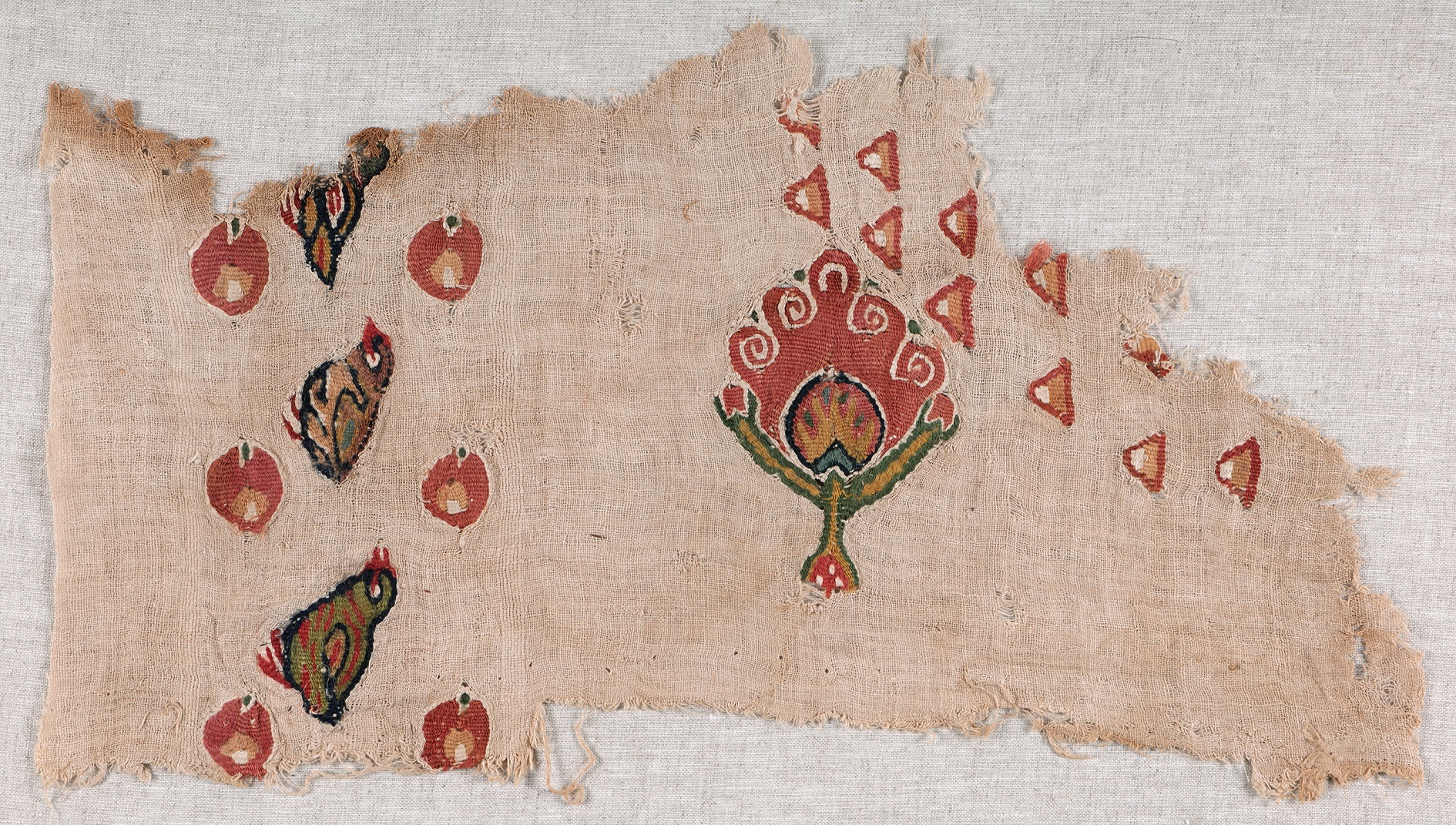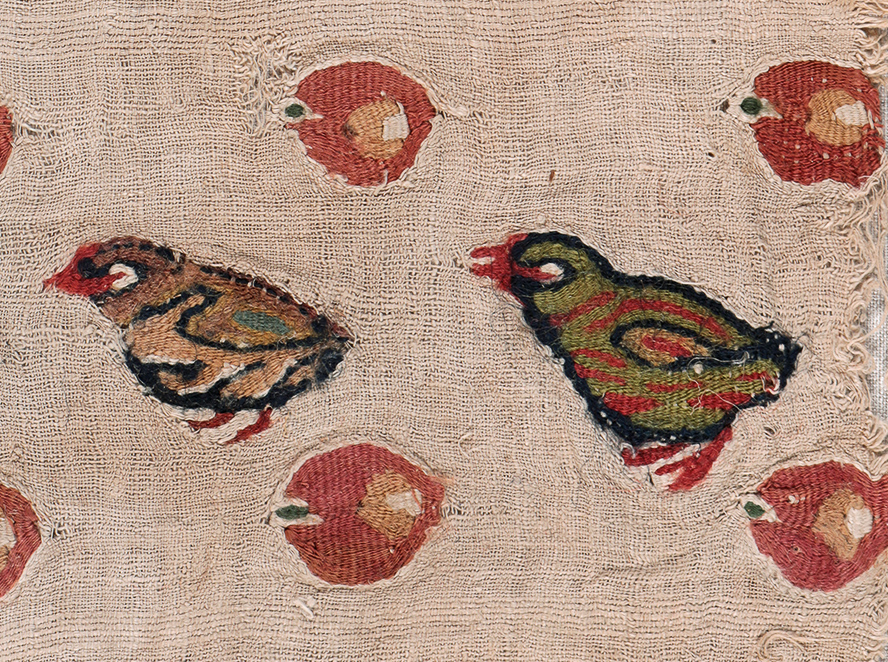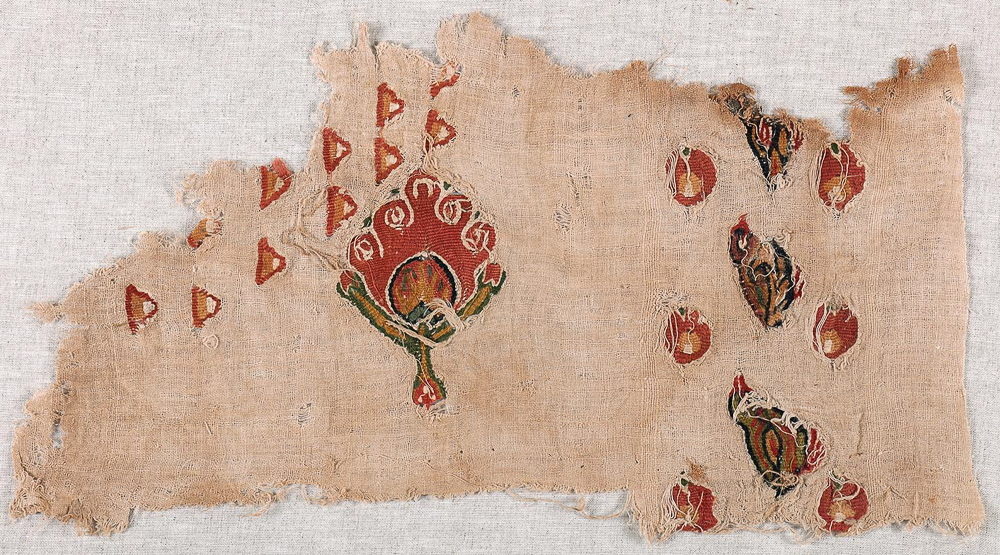To the left, a row of birds, framed by two friezes of yellow, red and green flower buds, form a sort of clavus. On the right, a large flamboyant flower in red, yellow and blue on a green, yellow and red stem. Nearby, small, geometrical plant motifs at 90°.
Origin:
Egypt
Date:
5th - 7th century
Material:
Linen and wool
Dimensions:
Warp: 40 cm, weft: 22.5 cm
Comparisons:
Musée des Tissus, Lyon, inv. 24400.112 B: layout.
Such an arrangement recalls the neckline decorations of certain children’s and women’s blouses discovered in Antinopolis (5th – 7th centuries), which are similar to our fragment.
Provenance:
Collection Coptic textiles Fill-Trevisiol: donation
Location:
Musée royal de Mariemont
Tapestry motifs inwoven in linen cloth
I. Ground weave
Warp:
natural-coloured linen S: 24/cm
Weft:
natural-coloured linen S: 16/cm
Weave:
warp-faced tabby
Other features:
self-bands: 3 yarns/pick
II. Tapestry areas
Warp:
linen S
Weft:
red, green, blue and yellow wool Z: 46/cm: natural-coloured linen S: details: linen weft of ground weave is partly cut and is partly floating on the back, where sometimes used for details of the tapestry motifs
Weave:
extended tabby 3/3
Ribs per cm:
8
Special techniques:
slit tapestry, eccentric weft
Dyes analysed:
weft thread: red Z wool: madder


